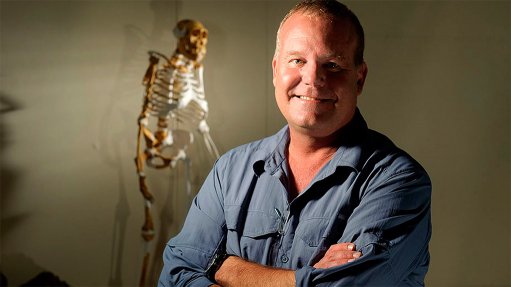
Lee Berger
University of the Witwatersrand (Wits) professor Lee Berger has been added to the 2016 TIME 100, TIME Magazine’s yearly list of the 100 most influential people in the world.
Berger is an award-winning palaeoanthropologist, researcher, explorer, author and speaker from the Evolution Studies Institute at Wits in Johannesburg.
The list, now in its thirteenth year, recognised the activism, innovation and achievement of the world’s most influential individuals.
Berger said it was an honour to be included in the TIME 100 and a tribute to the world-class and influential science being produced on the African continent by African scientists and African institutions such as Wits.
His explorations into human origins in Africa over the past two-and-a-half decades resulted in many new and notable discoveries.
These included the discovery of the most complete early hominin fossils found so far, which belonged to a new species of early human ancestor, Australopithecus sediba, and, in 2013, the richest early hominin site yet found on the continent of Africa and a new species of human relative, Homo naledi, announced in 2015.
Berger said that the recognition by TIME Magazine also reflected the hard work of his colleagues, who were all critical to the discoveries being made, as well as the interpretations put forward in the scientific literature.
“Wits University continues again and again to produce high quality science that reaches and impacts on a global audience and I am thrilled to be part of that. New discoveries continue to be made by my colleagues and me at an ever-increasing pace, and I hope, and indeed expect, that the research coming out of palaeoanthropology at Wits will continue to have a significant impact on science worldwide,” added Berger.
He note that TIME’s decision to recognise the influence of his team’s research on world science was partly owed to Wits’ leadership in open access and open sourcing.
TIME editor Nancy Gibbs stressed that the TIME 100 was a list of the world's most influential men and women, not its most powerful, but she added that those were not mutually exclusive terms.
“While power is certain, influence is subtle. As much as this exercise chronicles the achievements of the past year, we also focus on figures whose influence is likely to grow, so we can look around the corner to see what is coming," she said.
To see the full TIME 100 list click here